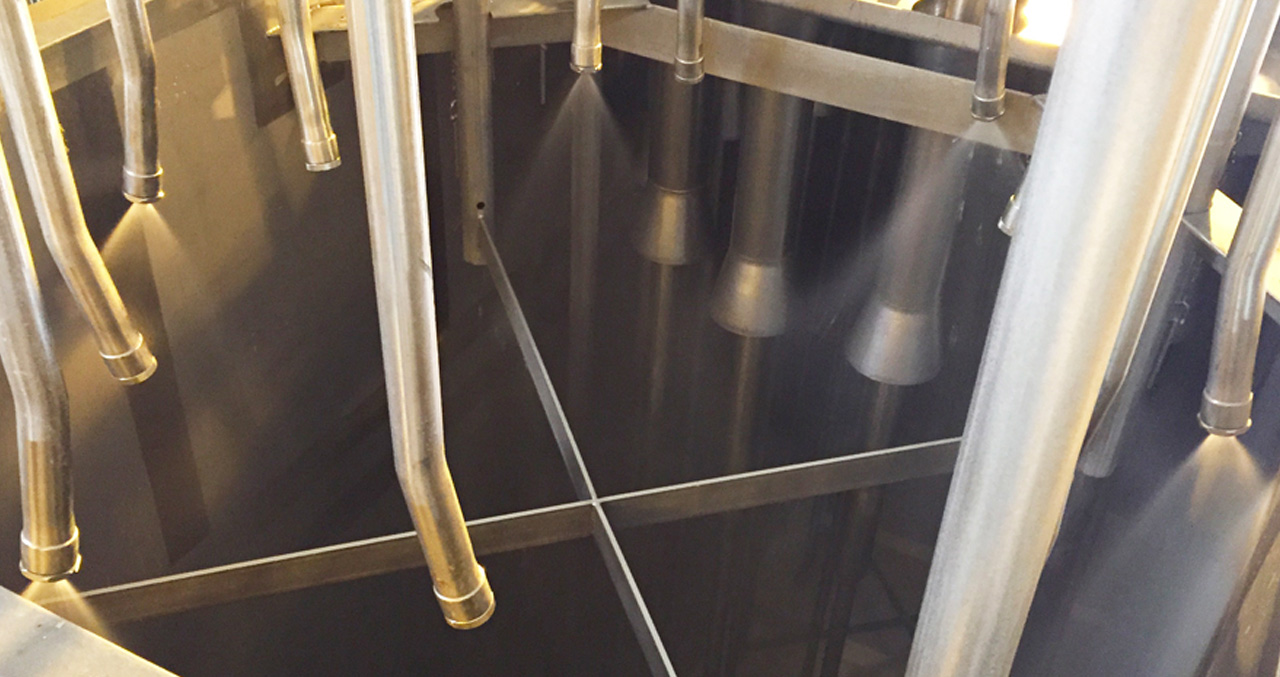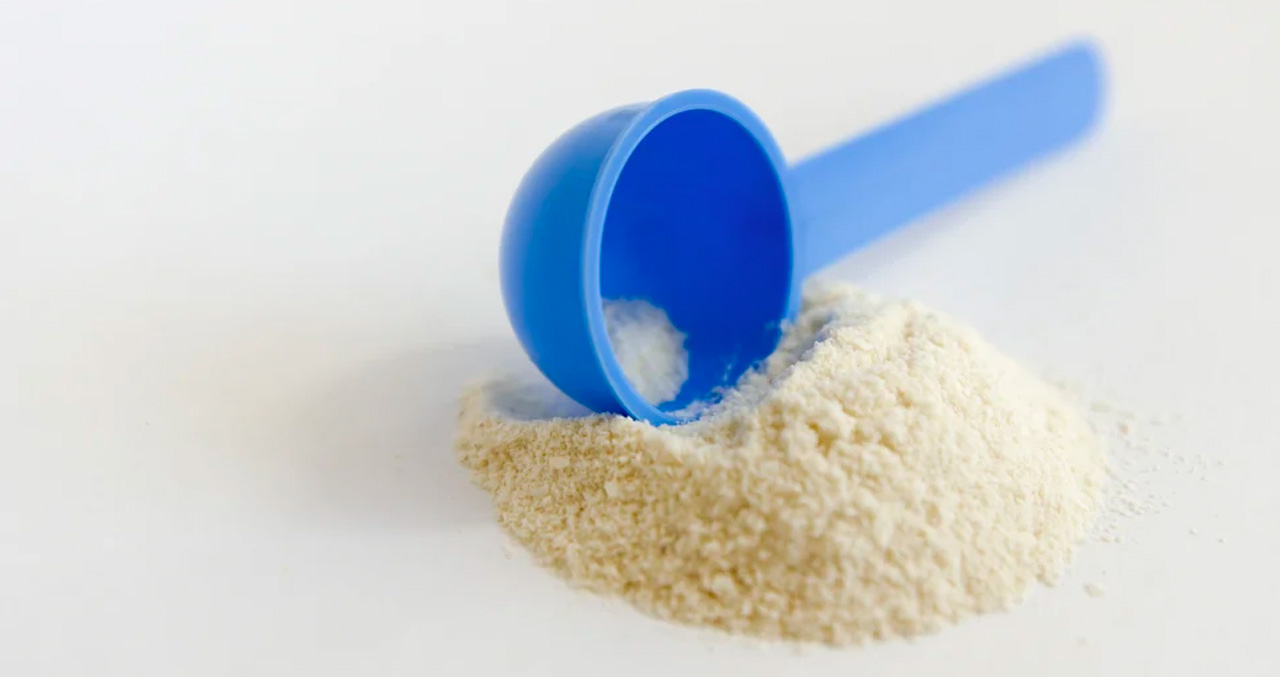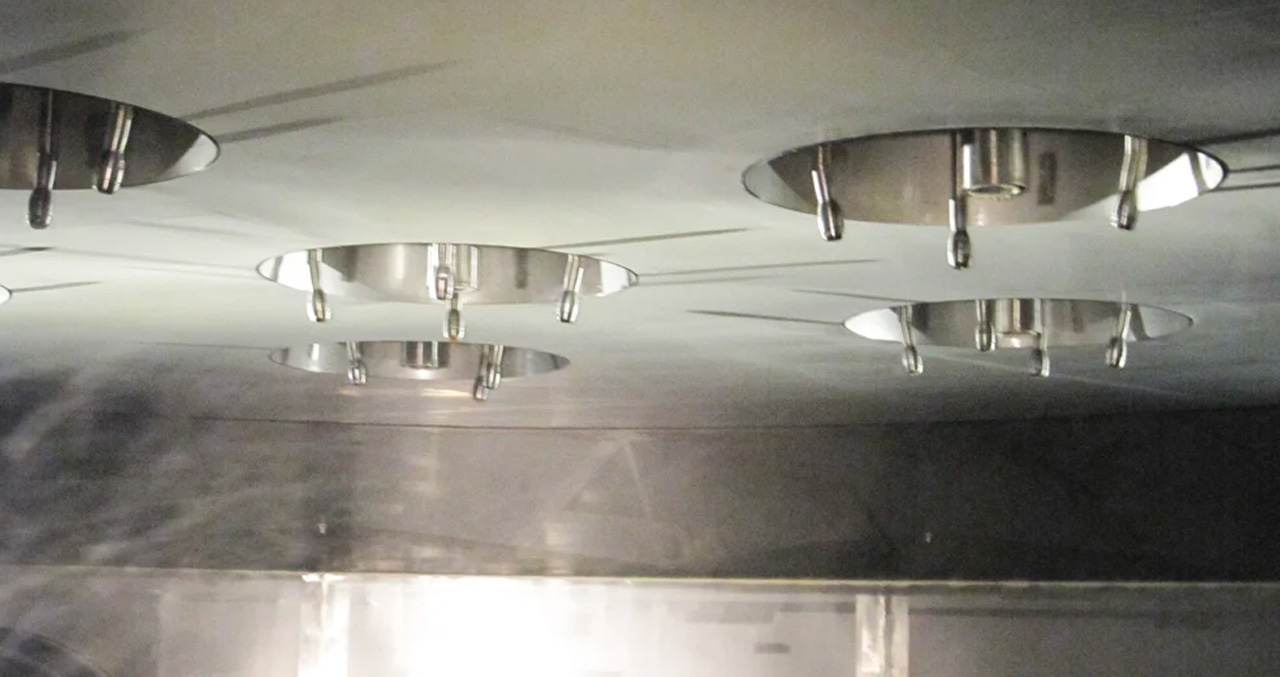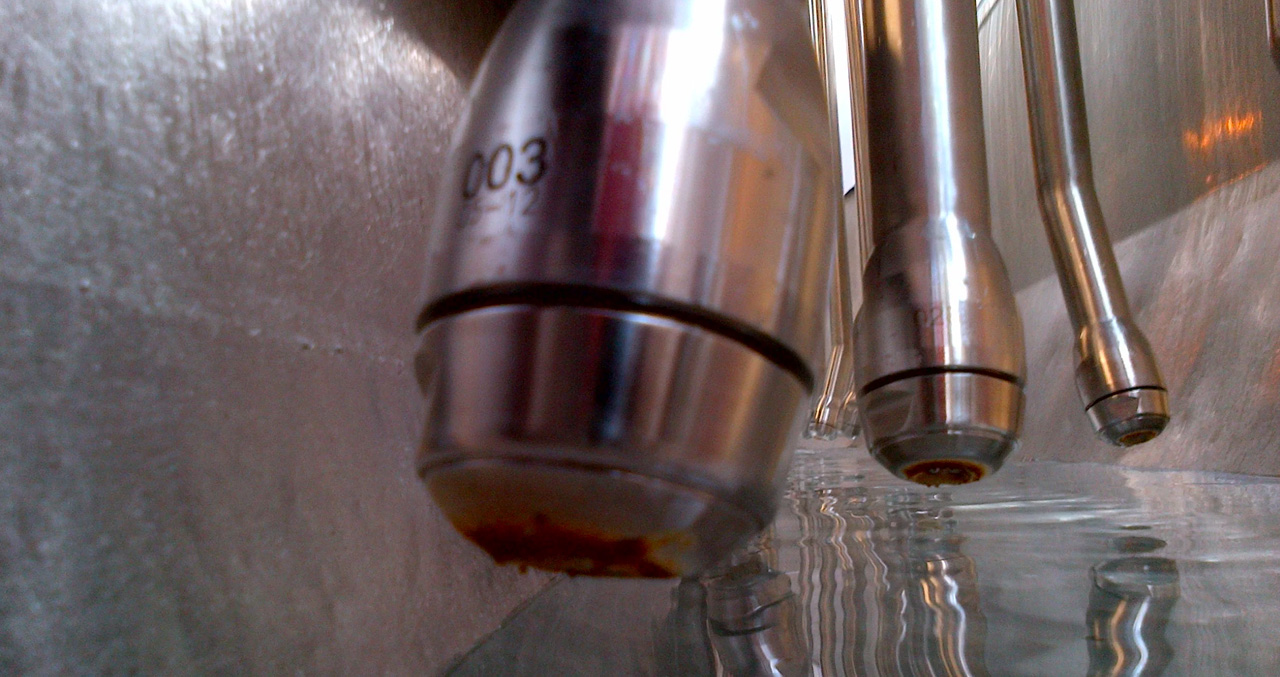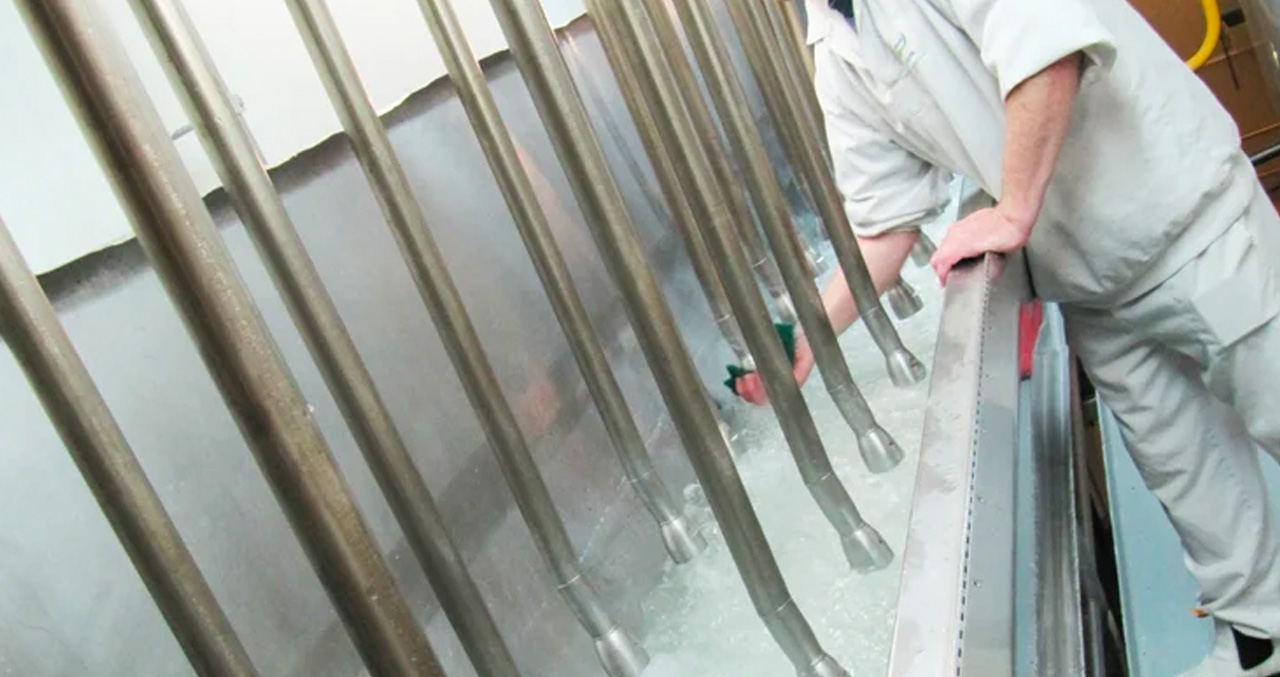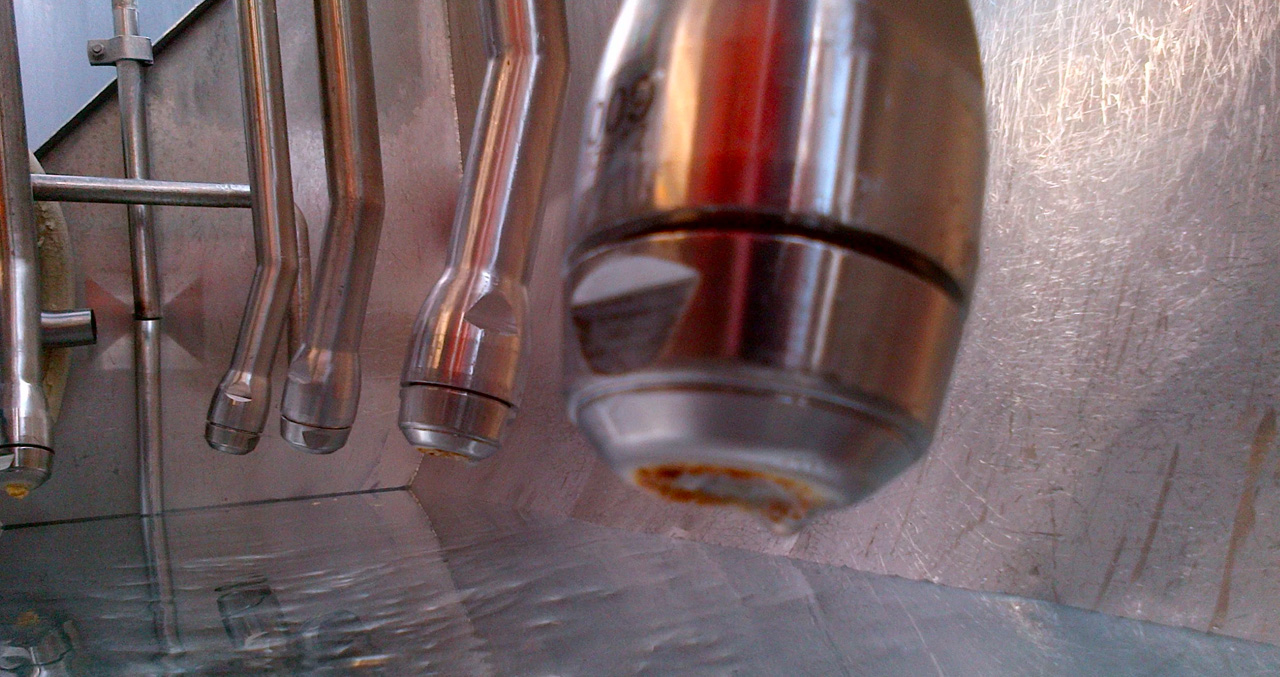The risk of adverse events is ever-present in any spray drying operation. Spray drying is a physical–chemical process in which evaporation transforms liquid into dry powder – and wherever there’s powder or dust in spray drying plants there’s a risk of explosion or even fire.
An effective means to reduce the safety hazards in spray drying plants is to minimise the likelihood of seal extrusion and leakage in spray nozzle design. Not only does this reduce maintenance costs by lessening bearding and making maintenance easier, but better-designed spray nozzles also increase safety by lowering the likelihood of fire or explosion during the spray drying process.
A number of spray nozzles currently being used in plants are of a vintage that exceeds recommended operating pressure. This can result in quickly worn and ablated nozzles that are at risk of pressure failure. The inefficient design of these spray nozzles means they operate at pressure stress levels that exceed safety standards. This can heighten the danger of an explosion.
Some plants also currently operate spray lances with exposed nozzle hardware sealing surfaces that are frequently subject to impact during handling. Such impact damage can compromise sealing quality causing the failure, an explosion or a fire.
Older and obsolete nozzle technology can also pose a safety hazard by making the task of maintaining hygiene standards more difficult. Twenty-first-century commercial spray drying plants expect that the equipment they purchase will be manufactured with the highest levels of hygiene. But some less-than-optimal spray nozzle designs in use throughout the spray dry industry can degrade a plant’s ability to maintain those standards.
Conventional nozzle designs also increase the risk of incorrect assembly. This problem stems from the inability to see if the O-ring has been inserted after an orifice disc has been installed in the cap. Regular wear parts and other components in these conventional designs can also be installed upside down or become misaligned during tightening.
Fortunately, in recent years a modern and more efficient nozzle design has become available to spray dry operators.
WATCH WEBINAR RECORDING
The Click&Dry line of spray nozzles improves operator safety while reducing maintenance costs. The innovative design of these nozzles avoids seal face damage though its unique sealing face skirts on both the female lance body and cap. These reduce impact damage on all important sealing faces.
The Click&Dry design also features the unique ‘no gap axial seal’ that is designed to accommodate pressures well above typical dryer operating pressures, according to O-ring standards. This solves the problems inherent to traditional radial seal systems that often suffer from O-ring drag and tearing during assembly. The axial O-ring design reaches the sealing face only when the cap is fully engaged to the nozzle body. This reduces dragging and tearing during assembly which, in turn, means less risk of leakage.
Click&Dry nozzles also reduce levels of bearding that can create fire danger for powder plant operators. By eliminating the O-ring groove within the cap, a lower outer face profile is created that diminishes product build-up.
Adopting the Click&Dry nozzle system offers powder plants the latest technology in spray drying. Customers have reported increased safety and hygiene standards, as well as lower maintenance costs. It’s a win-win solution for commercial spray dryers.
Read more about spray drying nozzle technology
Spray Nozzle Engineering Editor

